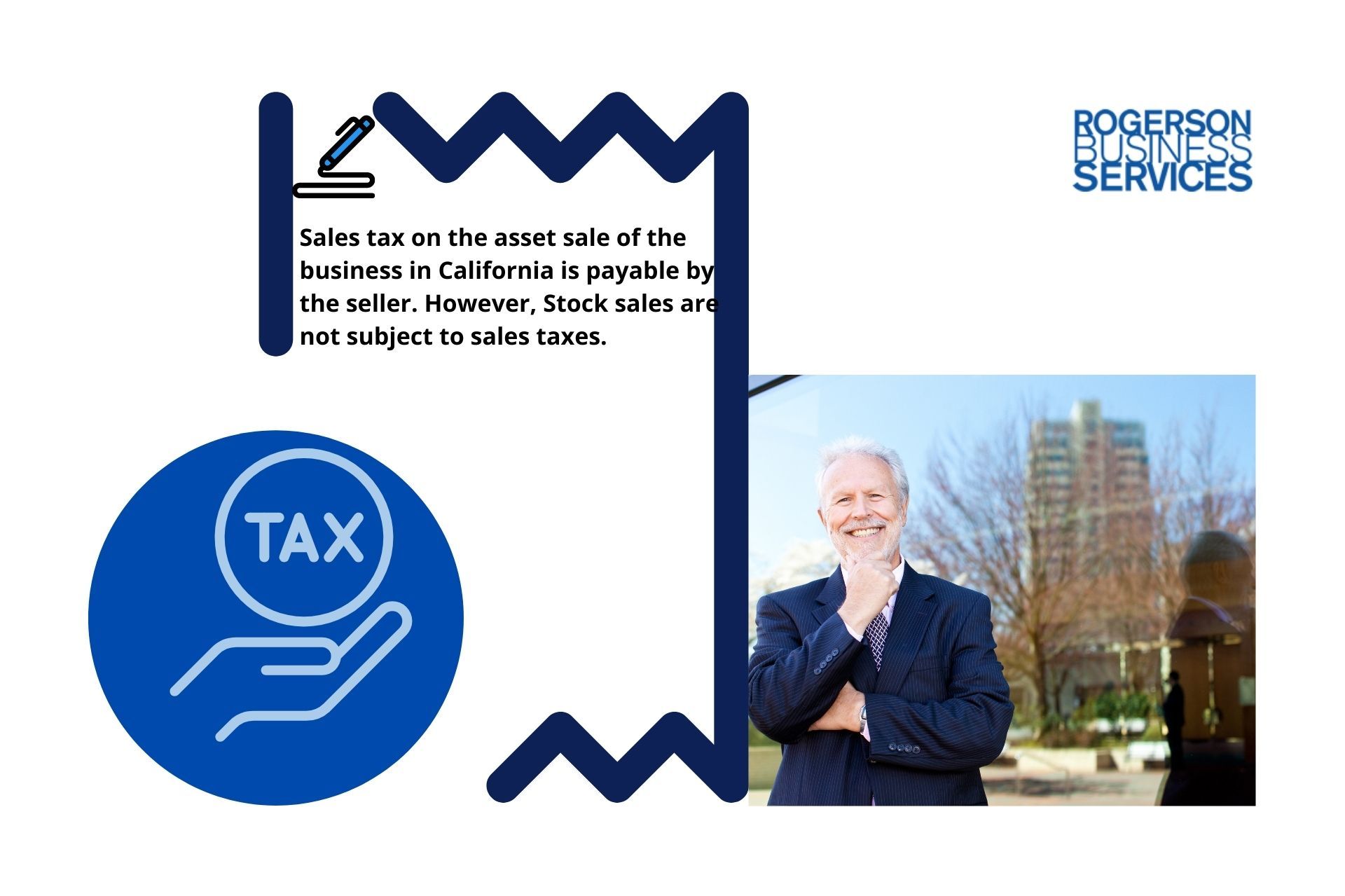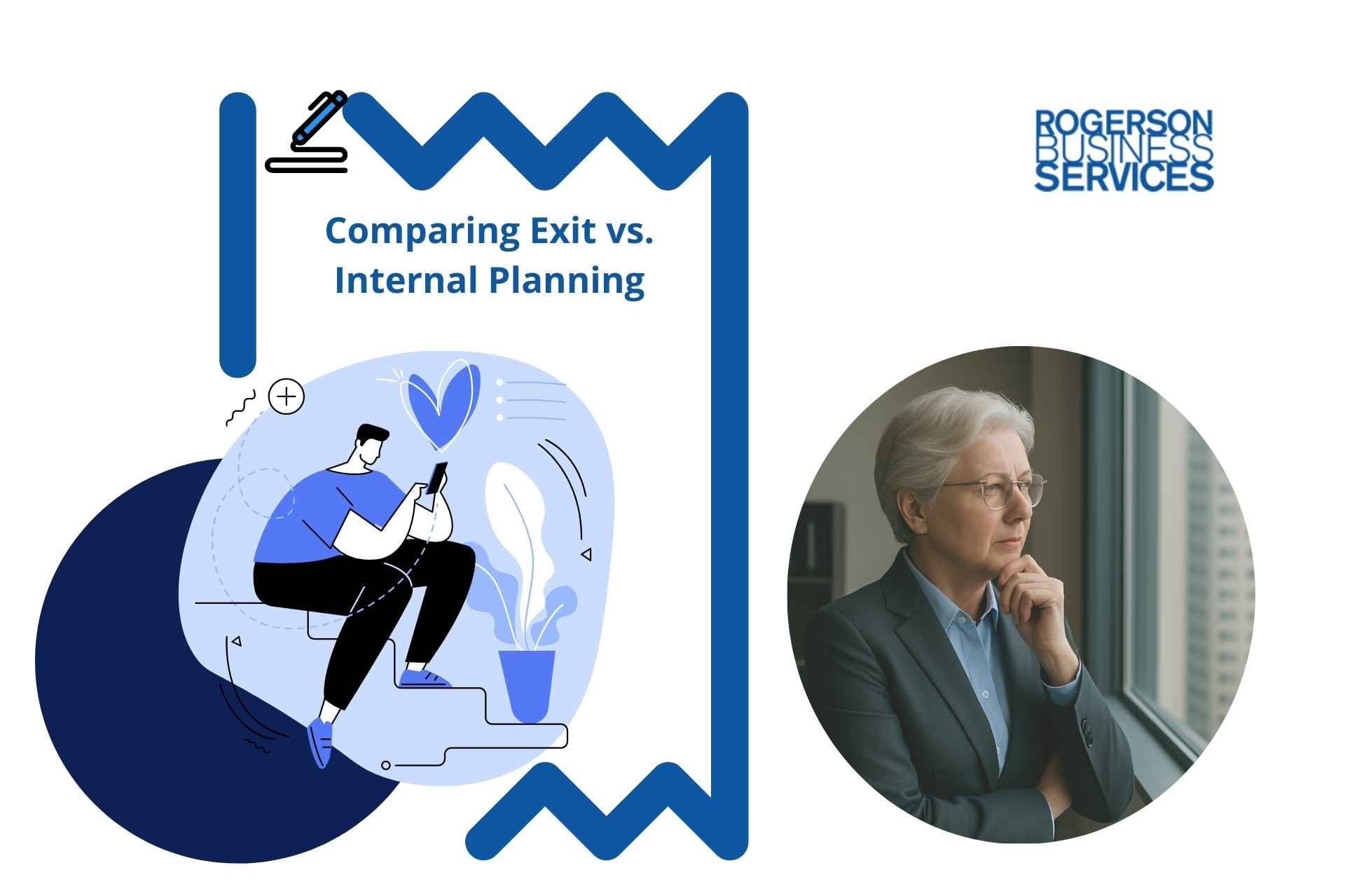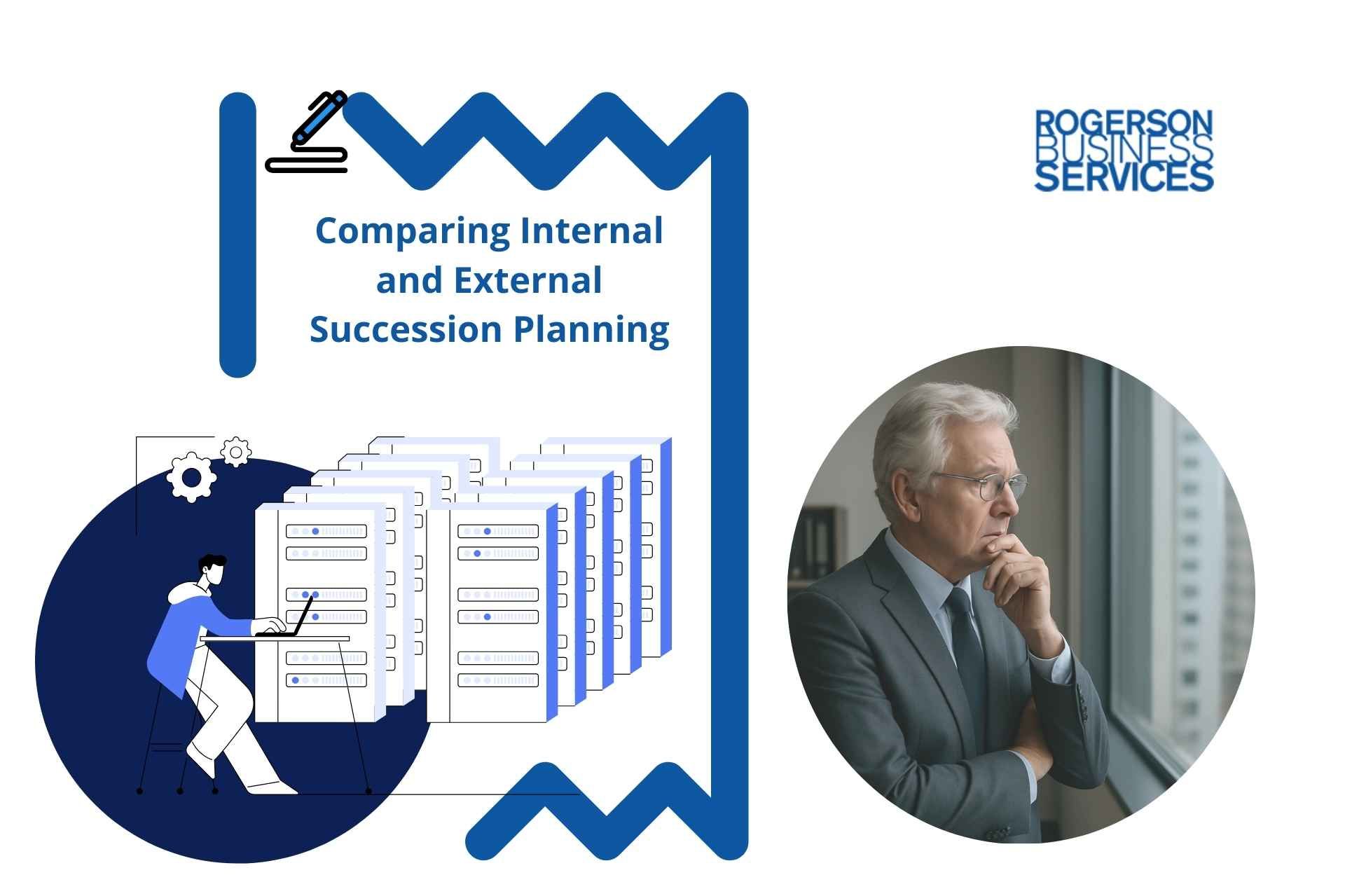Who Pays Sales Tax When Selling a Business in California?
Sales Tax on Asset Sale of Business
Sales tax on the asset sale of the business in California is payable by the seller. However, Stock sales are not subject to sales taxes.

Sales tax is one of the most significant revenue streams in America. It is an intricate field within the finance industry because every state has different laws and systems for paying sales taxes. For example, California imposes a sales tax on retail sales of Tangible Personal Property (TPP). Typically, this sales tax is 7.5% but may include additional local sales taxes.
When you merge or acquire a lower-middle-market business in California, sales taxes are added to the cost of the sale and paid to the seller. According to California tax laws, the seller is responsible for collecting and reporting the sales tax to the government.
That said, buyers and sellers can discuss terms in the pre-sale agreement, like the seller paying all sales taxes before the official transfer date. Of course, buyer or seller agreements should be documented in writing, signed by both parties, and provided to the state board of equalization within 90 days of the sale.
A few types of sales and businesses have exemptions from sales taxes, including the following:
- Sales of business inventory
- Sales of business goodwill
- Companies registered with the California State Board of Equalization (BOE).
Please get in touch for assistance if you have questions about sales taxes for M&A deals for a lower-middle-market business in California. Our experienced M&A advisors and lower-middle-market business brokers are happy to assist you however you need.
Who Pays Sales Tax When Selling a Business, California?
Generally, the seller collects the sales tax when selling a business in California. The new business owner will pay a tax on their business merger. That said, taxes on selling a business in California vary based on the type of business of the M&A deal.
Five Factors of California Sales Tax
Buyers and sellers pay taxes on selling a business in California and other retail goods. Taxes trickle down so California government representatives can use the money to maintain and update the city infrastructure and support local programs. Sometimes purchases are exempt from sales taxes, while other times, tax rates are higher depending on which part of California you’re in.
Below we’ll discuss five factors of California sales tax and important things to know about selling a business taxes, buyer taxes, and more.
1. Tax Applies to Sellers
There are two main types of ways to sell your business in California: asset sales and stock sales. In the case of asset sales, the seller is responsible for sales taxes. Stock sales are not subject to sales taxes. We’ll discuss both options in more detail below.
2. Tax Applies to Buyers
In most cases, the person who pays sales tax when selling a business in California is the new buyer. Like a candy bar at the convenience store, businesses are subject to sales taxes for which the buyer is responsible. Of course, at the end of the fiscal year, the buyer will report the amount of sales tax paid, just as the seller will report the amount of sales tax they received from the sale.
Contact an expert sell-side advisor if you want to pursue an M&A deal for lower-middle-market businesses in California to learn more about when buyers are responsible for sales taxes in California.
3. Tax Exemptions
Some M&A deals are exempt from taxes. For example, if a company is a service business, it could be eligible for the “occasional sale” tax exemption, meaning the seller wouldn’t be liable for sales taxes.
Another California business sales tax exemption can be purchased after registering with the SBE.
4. California Sales Taxes Get Reallocated to the State
Sales taxes are used by the state to pay for road maintenance, education, healthcare, mental health services, social services, city or county programs, and more. Most of the funds collected from taxes go to a general state fund, while others have percentages allocated for specific categories.
5. California Sales Tax Rates Range Throughout the State
Sales taxes range country-wide but also state-wide. The average sales tax in California is 8.6%, with some counties or cities paying 10% in taxes and others 7.5%. Consider these differing local tax rates when acquiring or merging a lower-middle market business in California.
Remember to always carefully review purchase agreements and determine who is responsible for paying sales tax when acquiring or selling your business.
What Is an Asset Sale of a Company, and Why Would It Be Subject to Sales Tax in California?
There is a sales tax on the asset sale of businesses in California. Assets are subject to sales tax in California because they’re treated like single-item sales with individual sales taxes for each item sold in a lower-middle business merger.
What Is an Asset Sale
Asset sales evaluate your business by separating and appraising equipment, land, vehicles, and all company assets. The seller is responsible for the sales tax on sales of business assets unless the company bought is a service business.
What Is a Stock Sale
Stock sales are a method of merging and acquiring a California business by buying majority shares of the stock. Stock sales are essentially package deals with a financial appraisal of the overall business with all assets. Unlike tangible asset sale tax treatment, intangible assets, such as stocks, are not subject to sales tax for the seller.
Key Factors That the CBE Considers When Determining if a Transaction Is an Asset Sale
The California Board of Equalization (CBE) determines when a transaction is an asset sale based on several key factors, including the following:
- The sales price is $400+
- Types of assets sold
- Circumstances around the sale
If the CBE considers your sale an asset sale, it will be subject to tax that the seller is responsible for.
For example, the CBE would consider the acquisition or merging of substantial assets for the sake of continuing business as an asset sale.
How the BOE Applies These Factors in Practice
The Board of Equalization (BOE) also uses the factors mentioned above to ensure business sales in California are sold at a fair market price and by the law.
The BOE looks at the sales price of the assets, types of assets sold, and circumstances around the sale, like what the seller continues to do with their profits from the sale.
The BOE will analyze business sales and adjust sale prices of M&A deals to better reflect fair market value. Similarly, they might adjust the price if the transaction was not an arms-length deal sold to a family member or friend. For example, the BOE might permit a sale price that’s lower than the average market value if a relative acquires the business in California.
By adjusting sales prices to meet the average market price, the BOE ensures that sellers get a fair price for their business. Meanwhile, buyers benefit from the BOE’s oversight because they know they’ll get a fair market price that reflects the improvements they made to the business once they decide to sell.
Recent Case Law on This Issue
According to the most recent 2024 revision on California tax law, “tax applies to all retail sales of tangible personal property including capital assets.”
Previously, the BOE didn’t add sales tax to asset sales. However, new amendments to California tax law have changed how businesses operate and sell, with asset sales being eligible for additional sales taxes.
This means that when families transfer ownership from own member to another, the transaction accrues sales tax which must be declared by both buyer and seller in the fiscal tax reports every June.
This revision of California tax law is significant because now, many businesses are paying large taxes on asset sales in California.
Potential Implications for Taxpayers Who Engage in Asset Sales of Companies in California
If you’re buying or selling a lower middle market business in California, sales taxes may increase the overall transaction price, especially if you opt for an asset sale. In contrast, a stock sale might mitigate some of the federal taxes you pay on an M&A deal for lower-middle-market businesses in California.
Sellers typically prefer stock sales, while buyers prefer asset sales. Stock sales give sellers a tax break because they are usually taxed as long-term capital gains at a rate of around 20% (plus a 3.8% net investment income tax). Meanwhile, ordinary income is taxed at around 37%, depending on your situation and location in California.
Asset sales are eligible for sales taxes which the seller is usually responsible for, making this transaction type more favorable for buyers.
If you are thinking “I want to sell my business” and are planning to make an M&A deal in California, speak with a professional and experienced accountant. With thorough knowledge of the California state tax system, asset sales taxes, stock sales taxes, and more, our team of professionals can guide you as you merge and acquire a lower-middle-market business in California.
Hey there! Can we send you a gift?
We just wanted to say hi and thanks for stopping by our little corner of the web. :) we'd love to offer you a cup of coffee/tea, but, alas, this is the Internet.
However, we think you'll love our email newsletter about building value and properly position your company before transition/exit your business ownership.
As a special welcome gift for subscribing, you'll also get our helping and educational guides, tips, tutorials, etc.. for free.
It's filled with the best practices for retiring serial business owners like Dan Gilbert, Larry Ellison, Warren Buffett, and many more.
Just sign up for our emails below.


